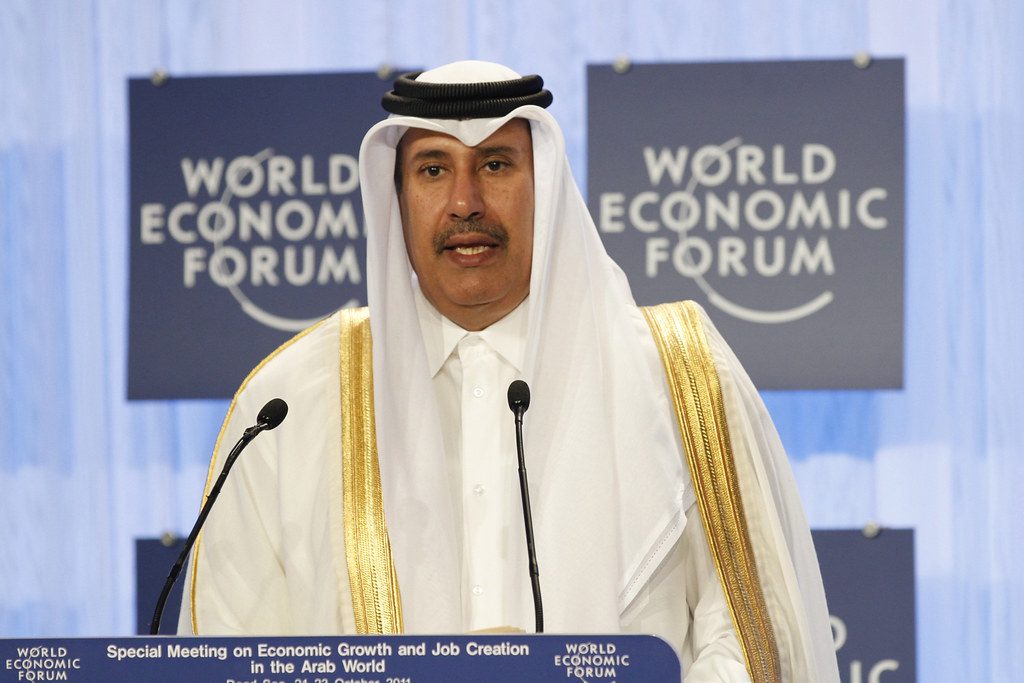The Gulf state offered to mediate between its neighbours and Iran.
Qatar’s former Prime Minister and Foreign Minister Sheikh Hamad bin Jassim Al-Thani, known commonly as HBJ, said that engaging with Iran is key to ensuring regional stability.
The comments were made during an interview with Russia Today on Sunday, where the Qatari tapped into various topics concerning the region, namely the 2017 GCC crisis and the Al-Ula declaration.
Responding to a question about the GCC’s ties with Iran, Sheikh Hamad stressed that the region must build an atmosphere that is resistant to tensions and shifts in positions by other world powers, using the nuclear deal file as an example.
The former foreign minister said the GCC must “re-evaluate” its positions and strategies following what he described as the “decline of the US role in the region”.
“We need to have direct dialogue with Iran to reach positive relations between the GCC and Iran and this won’t come if we go with the changing conditions, whether there are escalations with the US or not,” said HBJ.
He added that having a well-defined relationship with Iran is key in ensuring regional stability and that there should be direct talks with the Islamic Republic “to reach long-time agreements built on trust”.
The latest GCC crisis was triggered when Saudi Arabia, the UAE, Bahrain and Egypt launched an illegal land, air and sea blockade on Qatar over claims that is sponsors terrorism. Doha has vehemently denied those allegations.
The quartet claimed the move was due to Qatar’s relations with Iran and Turkey, both of which have had their own political rivalries with Saudi Arabia and the United Arab Emirates.
Despite Qatar repeatedly denying those allegations, the blockading countries at the time said they would only lift the embargo on Doha if it adhered to 13 demands, which included scaling down ties with Turkey and Iran.
Vienna talks start on ‘positive note’ as Iran pushes for lifting of sanctions
When the crisis was resolved in January with the signing of the Al-Ula declaration, Qatar offered to mediate between Saudi Arabia, Turkey and Iran.
On the other hand, it offered to mediate between Abu Dhabi, Tehran and Ankara.
In January, Qatar’s Foreign Minister Sheikh Mohammed bin Abdulrahman Al-Thani called for talks to deescalate tensions between major players in the region in an interview with Bloomberg.
Almost a year into the accord signed between the GCC countries and Egypt, there have appeared to be changes in Saudi Arabia and the UAE’s foreign policies.
Saudi Arabia and Iran have engaged in several rounds of talks over the past months, with positive statements being released from both sides.
Similarly, UAE and Turkish officials have been exchanging diplomatic visits.
The two countries also signed a number of agreements last week in the fields of energy and technology following talks between President Recep Tayyip Erdogan and Abu Dhabi Crown Prince Sheikh Mohammed bin Zayed al-Nahyan in Ankara.
Follow Doha News on Twitter, Instagram, Facebook and Youtube







